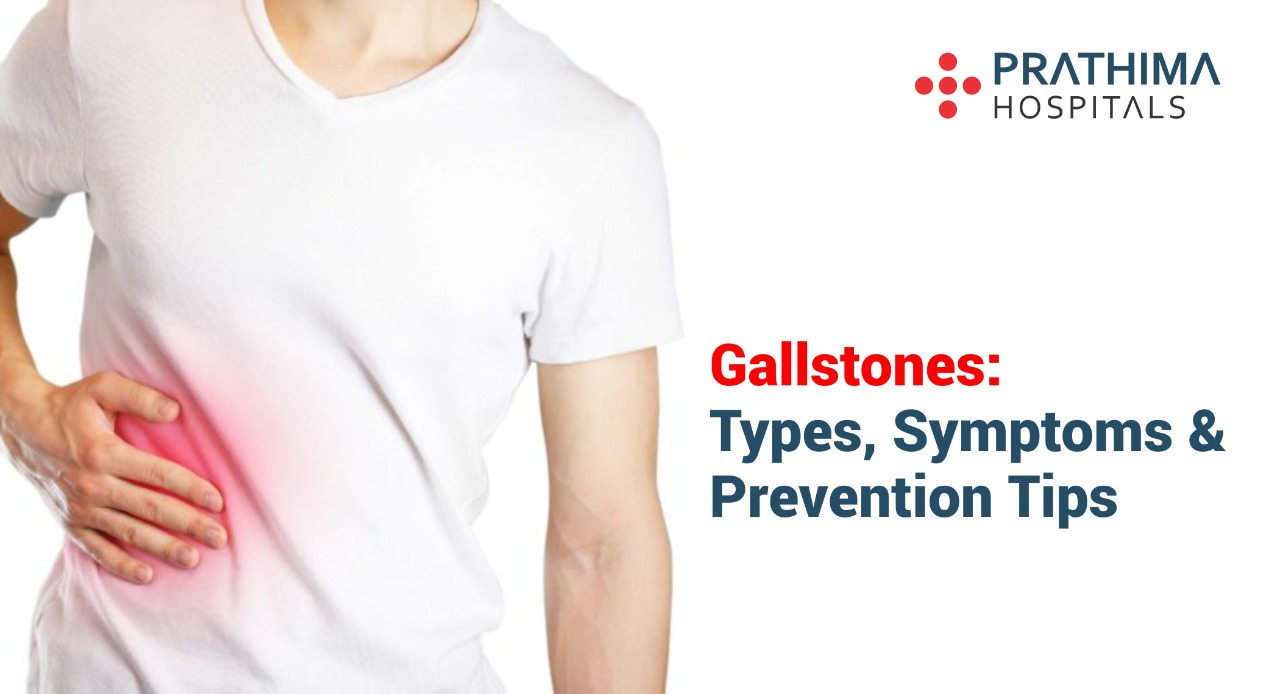Gallstones: Types, Symptoms and Prevention Tips | Prathima Hospitals

The gallbladder is a small organ that stores bile which is produced by the liver. Bile is a liquid that helps in breaking down fats. Gallstones are hard material that is formed inside your gallbladder. Gallstones can vary in shape and size. According to a study, most gallbladder stones are made of cholesterol and the rest made of calcium salt. For gallstones treatment, you should go to the best liver hospital in Hyderabad.
There Two types of gallstone; they are:
- Cholesterol stone: It is the most common type of gallstone. This is mostly buildup of cholesterol, but there may have other substances too.
- Pigment stone: This is formed when bile contains too much bilirubin.
Symptoms
- Nausea vomiting
- Increasing body temperature
- Heartburn
- Weakness
- Right hypochondriac pain radiating to back
How to prevent gallstones?
Gallstone is very common in people who are of age 41 or above. More than 10 million people face the gallstone problem every year in India. Nephrologist in Hyderabad.
A person can lower the risk of gallstone by following simple preventative measures:
- Fibre food: Consume foods that are rich in fibre such as banana, oats, cereals, and much more. It will help In improving your bowel movement.
- Water: Drink 7-9 glass of water per day. It stops bile from building more excessively and flushes out extra cholesterol from your body.
- Exercise: Workout decreases your chances of gallstone. Workout helps your body in digesting food quickly; as a result, your bile is flushed out of your body.
- Healthy weight: Obesity is one of the leading causes of gallstone. Maintain a healthy weight. If you want to lose weight, try to do it slowly. Rapid weight loss increases the risk of gallstone.
- Olive oil: Researchers say that people who consume olive oil regularly have fewer chances of having gallstone. There is a specific substance found in olive that helps in lowering cholesterol.
Does gallstone lead to liver failure?
As of now, there is no such study to support the statement that gallstone leads to liver failure. Some studies claim that liver cirrhosis can lead to gallstone depending upon the age of the person.
Conclusion:
There are significantly fewer chances of a person dying from gallstone. In most cases, gallstone causes no sign and symptoms due to which people don’t even know that they have gallstone for many years. If gallstone causes blockage only then a person feels symptoms. It is crucial to consult a doctor immediately if you feel any symptoms. Nephrologist in Kachiguda.



